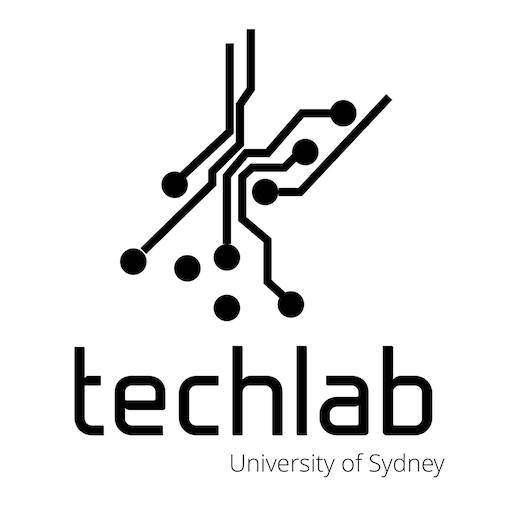Serious Games and SARS-CoV 2
Playing games is fun - a great way to wind down, but more than that, there is a psychological drive in humans to play challenging games. We want to know that we have mastered a situation, and we enjoy the feeling of progressing and accomplishing goals.
This leads to the unique value proposition of educational games, or the genre of serious gaming, as a means to help the broader public come to grips with the world changing impact of Coronavirus. This approach has some proven success in Climate science, with high profile games such as Endling — communicating habitat destruction and extinction in a compelling and powerful way, with game play elements that are relatable to gamers.
The difference between climate change and the pandemic we find ourselves in, is that the former has 40 years of scientific consensus, often communicated effectively from scientists to laymen. SARS-CoV 2 is known to us only since about December 2019. Game developers do not yet have the same breadth of access and understanding, as the science of this pandemic has not been fully culturally assimilated yet.
So, let’s get medical scientists to design and build these games.
As part of the MEDS3888 Cohort in semester 2, 2020, we recruited 4 game development teams. The MEDS3888 program is designed around interdisciplinary problem-solving and our proposal was simple: How can you communicate the science of COVID-19 using video games?
In 2020, The University of Sydney Medical School joined the Unity Academic alliance; this gave us the ideal launchpad. Not only does this alliance give us access to software resources, but also a huge community of global organisations to work with to deliver educational outcomes.
For the first 2 weeks of the semester, student teams spent time establishing a plan. We set groups up in Unity Teams and took them through our game development process.
Each group was taken through the 6-step process laid out by the “Ask a Game Dev” channel on YouTube. Then we (unit coordinators) setup Slack channels for each team, and brought in a design student intern 2 days a week to support debugging and polish for the teams. Through the process (which was 9 weeks) we asked teams to incorporate animation, sound design and world aesthetic every time they worked on their next component.
How do we get scientists to be game developers?
Each team spent 2-4 hours per week on more complex programming challenges with our design intern. Engagement on slack where possible was quick and responsive, however, we tried to rely on open source and credible online resources to solve the questions. For anyone planning to rapidly build a game from never having done so before, that list is here;
- Brackeys: Even though he has left Unity development on YouTube, His tutorials are still what any educator should aspire to.
- Unity: Second only to Brackeys is of course Unity's own channel. The tutorials here are excellent and usually the most updated to keep up with the changes to the platform.
- Thomas Brush: Renowned aesthetic designer in Unity for academia and industry
- Dilmer Valecillow: Adept at the technical elements of Deployments and making cross-platform tools
- Jason Weimann: dedicated to online tutorials helping game development
Where content didn't exist, we created small video-based tutorials shared to every group, to be equitable. There weren’t many places where this was necessary as the Unity community is large and generous. Lastly, we encouraged groups to leverage pre-built assets as much as they could, as this was merely a 9-week development program, alongside full time study.
Enough already show me the games!
Gladly.
Three of these games are playable online, while one requires a download (please reach out to TechLab if you’d like to try ‘Mask On’).
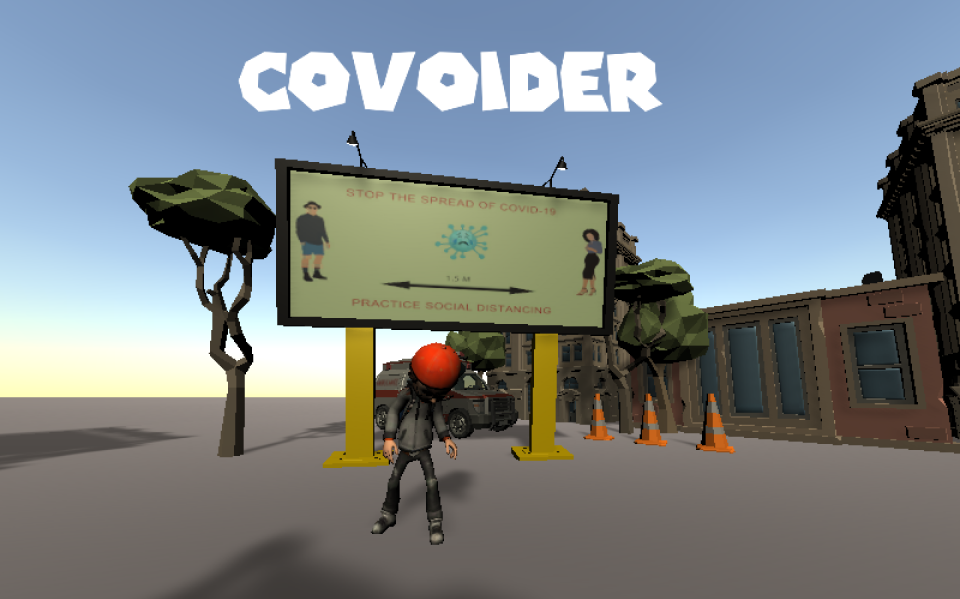
Covoider by the Team Viral Gaming Dojo, is a swipe-based endless runner, where you social distance and collect PPE masks to protect yourself from the Virus. The message of the game is that a combination of approaches is necessary, as risk multiplies exponentially the more time you spend around other people.
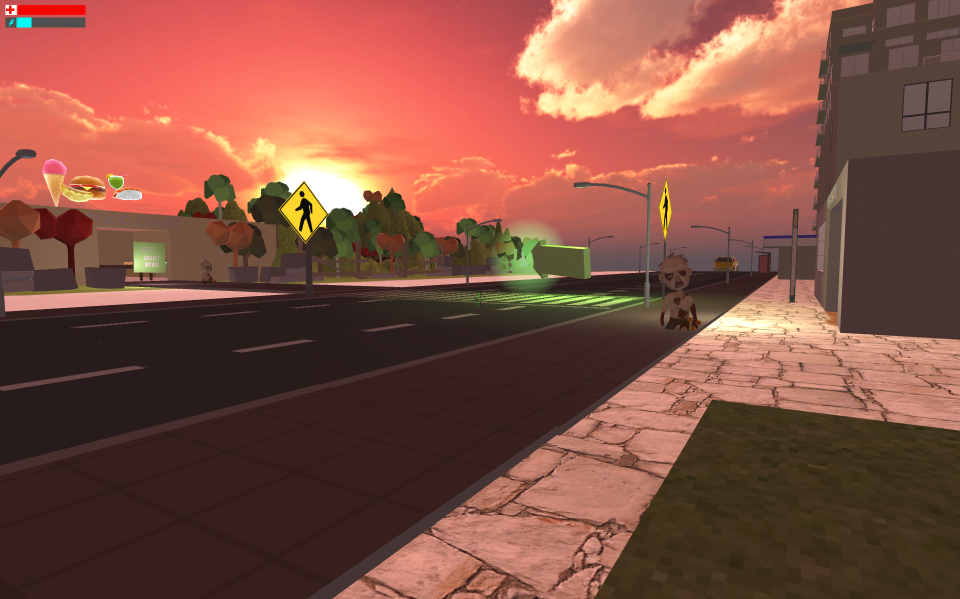
UwUniverse: a message of hope by Team UwU_UwU is a First-person Shooter, where you sanitise the virus and deliver masks to the infected, to undertake simple tasks like collecting groceries or visiting the gym. It also addresses feelings of isolation for the elderly, as the coronavirus ravages aged care.
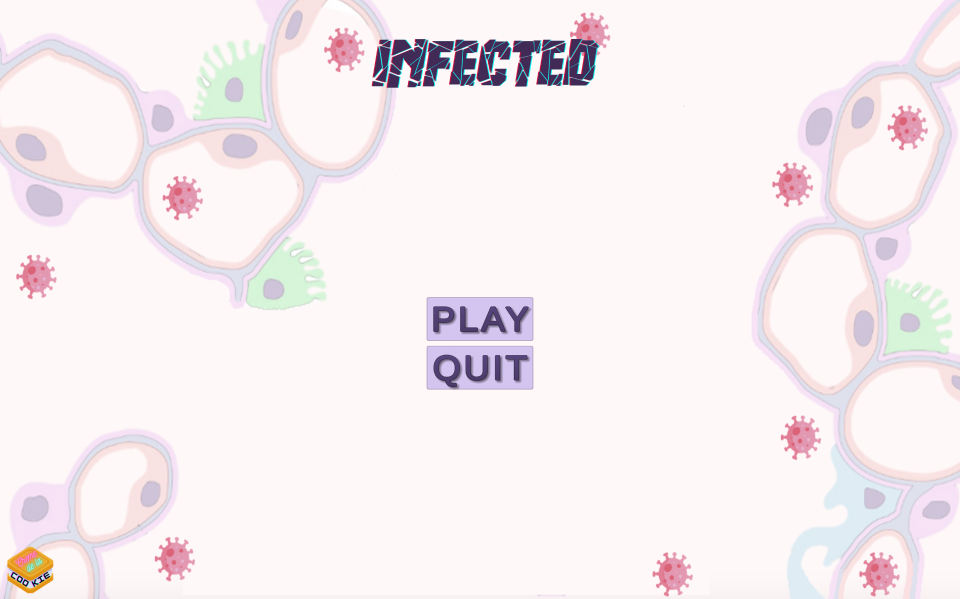
Infected by Team Crème de la Cookie is an immunology platformer where you travel inside the respiratory system of a SARS-CoV-2 sufferer to assist with their combatting the virus, by collecting the spike proteins necessary to develop antibodies.

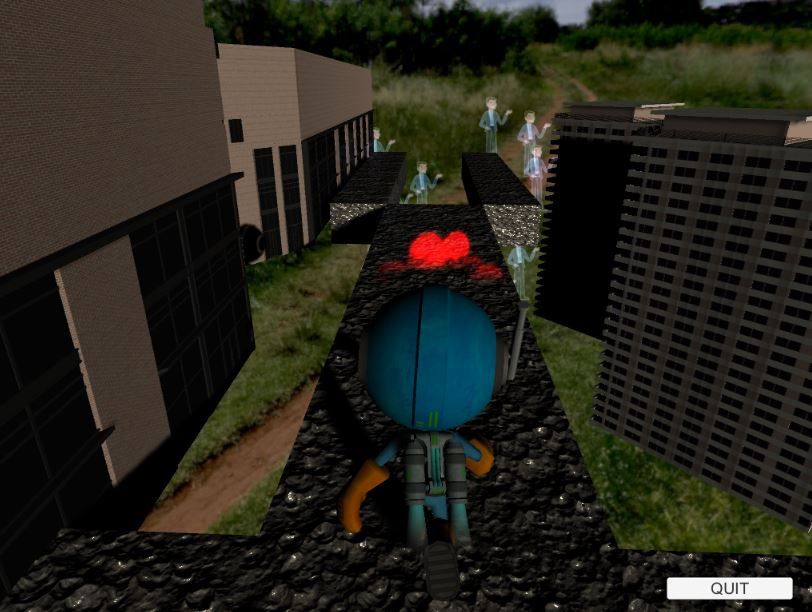
Mask On is an endless runner game in an urban setting with a first-person persona, It has a free form and generative approach and requires sanitisation as a core approach to dealing with the virus. Handwashing and cleaning surfaces is the number one way this game addresses the concerns of COVID-19
The 3 web based games are available here. Remember these are student projects across 9 weeks, developed end-to-end, NOT by game development students, design students, or software engineers, but by scientists.
We believe that with 3 more weeks’ effort and some engineering know-how, each of these games could be released onto various app stores. To that end. We will likely be running more broad Med games challenges in 2021, and continuing this offering to the MEDS3888 cohort as well.
Banner Virus Image created by Yuliya Stepkina as part of a MEDS3888 project using Cinema4D and protein structures from the Protein Data Bank.
